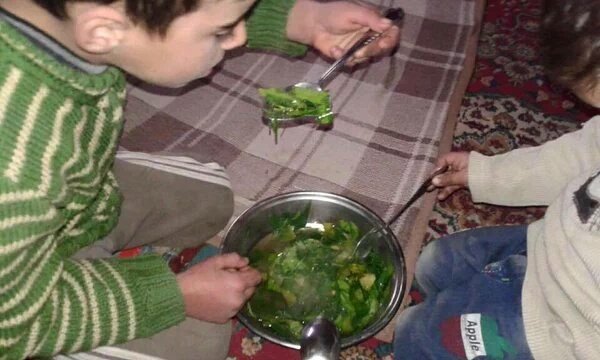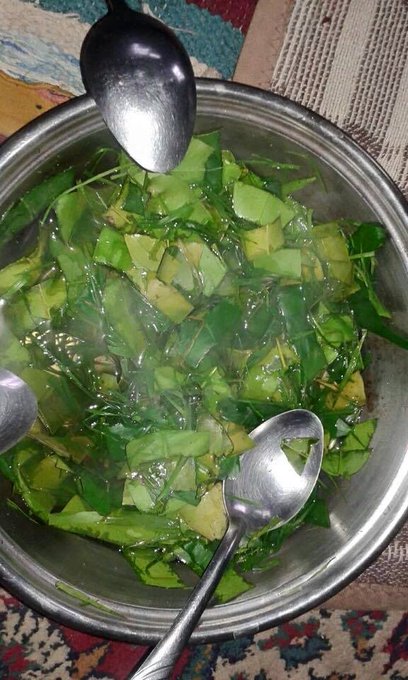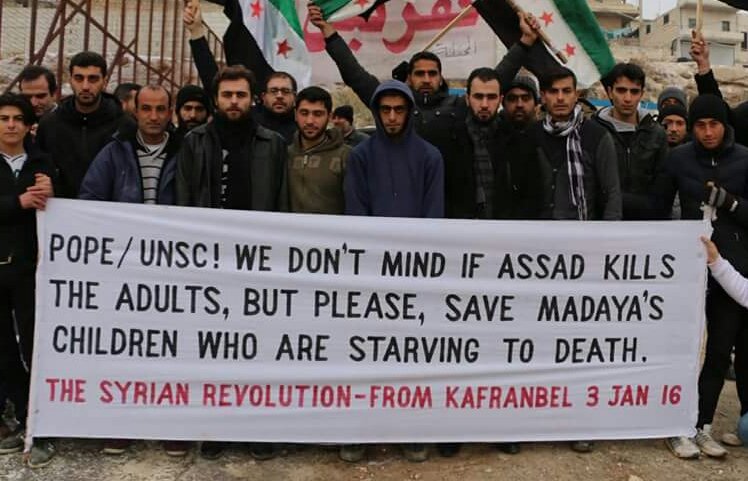War criminal charges for Assad, the Iranian Mullahs or even Putin? Nah….but why not? Where is the United Nations Human Rights Council, heck where is Samantha Power or Barack Obama? (rhetorical)
Obama’s redline?
A fact-finding mission of the Organization for the Prohibition of Chemical Weapons (OPCW) has found indications that some people in Syria were exposed to sarin gas, according to a report to the UN.
The findings were presented in the latest monthly report on Syria from chief of the OPCW Ahmet Uzumcu.
According to the report, the mission to Syria was looking into charges by the Syrian government that chemical weapons were used in 11 instances. The report did not specify when the alleged chemical attacks occurred.
“In one instance, analysis of some blood samples indicates that individuals were at some point exposed to sarin or a sarin-like substance. Further investigation would be necessary to determine when or under what circumstances such exposure might have occurred,” Uzumcu was quoted as saying by Reuters. Much more here.
‘Children Are Eating Leaves Off The Trees’: The Nightmare of The Siege of Madaya, Syria
ViceNews: In the early hours of Sunday morning, a pregnant woman and her daughter tried to sneak out of Madaya, a mountain village perched in the snow-capped peaks of southwestern Syria.
As they reached the southern edge of town, someone tripped over a landmine, and the loud blast alerted a nearby Hezbollah checkpoint of their escape. The fighters opened fire, and between the explosion and the barrage, both mother and daughter died.
Desperate escape attempts like this one — which was reported by the UK-based Syrian Observatory for Human Rights, and confirmed to VICE News by local residents — have become more and more common in Madaya, a village of 40,000 that’s been under siege since July by a combination of Syrian forces loyal to President Bashar al-Assad and his ally, the Lebanese militia Hezbollah.
In the past month alone, 31 residents have died from starvation, or in attempts to run the Hezbollah-manned blockade that encircles the town. A report compiled by the Syrian-American Medical Society and made available to VICE News found that a kilogram (two pounds)of flour now retails for around $100, while the average Syrian makes less than $200 each month.
“I had strawberry leaves for dinner today,” Rajai, a 26-year old English and math teacher in Madaya, told VICE News by phone, asking that his name be withheld for security reasons. “I haven’t had a real meal in three months.” Since the siege began in July, he’s lost 50 pounds. “Kids are eating leaves off the trees, and the very old and very young are dying,” he said.
As the death toll mounted in December, residents of Madaya began posting desperate pleas on social media, along with disturbing images, reminiscent of Nazi concentration camps.
In a picture dated January 3, a group of young men hold a poster in English pleading with the UN and the Pope to do something to lift the siege.
According to Rajai, the Assad regime is punishing his hometown for its participation in the Syrian uprising in 2011. When peaceful protesters took to the streets in the nearby city of Zabadani in April 2011, Rajai joined in. “We wanted to clean this country of Assad,” he said. He was arrested and tortured. Now, after five years of civil war, his outlook is bleak.
“In the early days of the revolution, we used to say no one could be made to feel hungry or afraid,” he said. “But now we know we were wrong.”
Madaya lies on a strategically key line in Syria’s ballooning multi-front, multi-party civil war. The town is nestled within the Qalamoun mountain range, alongside the Lebanese border, less than 30 miles (50 km) from the capital Damascus. Stamping out unrest in Qalamoun, said Joshua Landis, the head of the Center for Middle East Studies at the University of Oklahoma and editor of the blog Syria Comment, is key to the regime’s survival. “If rebels there broke out, they’d have a straight corridor to Damascus,” he said.
In the early years of the revolution, many of the mountain villages along the Lebanese border sided against the Assad regime, throwing in their lot with the expanding constellation of rebels who took up arms across the country.
As the revolution grew more violent, the Syrian-Lebanese border became a key route for arms smugglers, who were funneling weapons dangerously close to the Syrian capital. Assad and his Iranian, Russian, and Lebanese allies made securing that border zone a top priority — more pressing even than retaking northern territory from groups like the Islamic State and al-Qaeda’s Nusra Front.
So with the help of the Lebanese militia Hezbollah, Assad has been brutally crushing restive zones along the mountain range by setting sieges reminiscent of medieval warfare. Besides checkpoints and minefields, the regime and its allies employ brutal blockades that prevent food or water from reaching the isolated towns. “They are starving people into submission,” Landis said. “It’s a very old tactic.”
In September, Hezbollah moved into the town of Zabadani, just two miles (three km) north of Madaya, and the town’s only real lifeline to the outside world. A few beleaguered rebel fighters were allowed safe passage out thanks to a deal brokered by Turkey and Iran.
As Hezbollah stormed the city, it forced people it considered hostile to move to Madaya, a tactic residents say was designed to separate out pro-regime and anti-regime civilians. Loay, a 28-year old student in Zabadani, was forced to relocate to Madaya with his mother when Hezbollah took over his town. “They said: go to Madaya,” he told VICE News by phone. “There you will die, from starvation.”
In Madaya, he said, it’s like “another world.” “Everyone,” he added, “is starving.”
Loay’s mother Umm Mohamad, 52, also hasn’t had a meal in months. “My only dream is to have a piece of bread,” she said.
Syrian human rights groups are watching Madaya with horror. “They are making it into a big prison and suffocating the area,” Dr. Ammar Ghanem, a Syrian physician who grew up in the area, told VICE News. A member of the Syrian-American Medical Society’s board, Ghanem still has family stuck inside, and has been monitoring the humanitarian situation from afar. “The regime want people to die there,” he said.
Medical services in the town are meager. “They have no supplies, and no training — one of their only doctors is a veterinarian who is now operating on humans,” Ghanem said. “We would like to send in supplies, but of course, we cannot get through the blockade.”
The United Nations has struggled to get any aid into the besieged town. In October, it managed to secure safe passage for a shipment of biscuits to Madaya and Zabadani. But the food turned out to be expired.
Over the past three months, the Assad regime has prevented any additional shipments, essentially signing death warrants for dozens of children and elderly civilians in the coldest months of the winter.
But there are also very practical reasons for the siege. Hezbollah is trying to trade the civilians in Madaya for the well-being of Shiite civilians under siege by rebel forces in the northern cities of Kafrayya and Fua. “It’s a negotiating ploy,” Landis said. “Basically Hezbollah is taking hostages.” Indeed, in September, members of Ahrar al-Sham, the militant Sunni group that’s blockading the Shiite villages, began negotiating with the Syrian regime to simultaneously lift both sieges. Though the negotiators were able to arrange for the safe passage of some fighters from Zabadani, so far, the deal has yet to bear fruit for the embattled civilians.
Though the siege undoubtedly takes a humanitarian toll, multiple residents in Madaya told VICE News that fighters with Ahrar al-Sham are present in the town. The group fights with Al-Qaeda in the north of Syria. But Landis, the Syria expert at the University of Oklahoma, stresses that the men who joined Ahrar in Madaya are most likely not ideologues. “They are fighting for their lives,” he said. “They’ll make alliances with whoever they think will save them.”
As the siege grinds on, civilians are increasingly losing hope, and fear their plight will always be in the shadow of the war up north against the Islamic State. “Sure, people may read about us if you write something,” Rajaai, the teacher, told VICE News. “But when they finish reading, they’ll forget us.”



